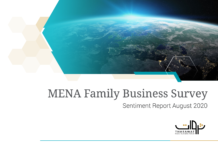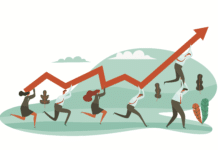Interview with Dr. Gah-Yi Ban, Assistant Professor of Management Science and Operation, London Business School
One of the greatest opportunities Big Data has brought businesses is the ability to find ways to optimise operations along the value chain. In fact, while the human element will never be removed from business decision-making entirely, the emergence of big data is enabling us to rely more on analytics and less on human guesswork.
So how can businesses make this crucial transition in 2018? Specifically, how can they approach business operations in an environment where experience and instinct have served as their guiding light?
Dr. Gah-Yi Ban has been studying and exploring these very issues in her position as Assistant Professor of Management Science and Operations at the London Business School. During a stint on Wall Street while enrolled as a PhD student at UC Berkeley, Dr. Ban realized that the financial industry was not making the most out of the big data that was at their disposal. Energised with a new insight, she returned to Berkeley to study graduate level statistics in addition to Business Operations, where she figured out how machine learning and AI could be implemented more successfully as a business tool.
Today she has expertise in multiple disciplines including statistics, computer science, operations management and quantitative finance. Tharawat Magazine had the opportunity to talk with Dr. Gah-Yi Ban about the emerging trend of big data, how it can help businesses of all sizes make better operational decisions, and what is just around the corner in big data developments.

How has big data changed business operations?
I always remind my students that analytics, the use of data and evidence to support decision-making in business, has been around for a long time. What’s different now is the fact that we have much more granular data about every single aspect of a business. In the past, you may have had some basic data on a few of your customers or just basic details of your daily operations. But now, we can collect so much more information and it’s possible to record literally second-by-second what’s going on. Now we live in a world where we have software and hardware that gives us the storage and processing capacities we’ve never had before. Also, data science has evolved and is still evolving its ability to handle this huge amount of data. So, big data means large potential in efficiency gains in daily operations of a business, and we are starting to see examples of that.
Big data can also bring about entirely new opportunities and product lines, but this will depend on the creativity and competency of the team. Efficiency gains are changes all businesses can expect from big data; new opportunities are harder to predict or generalize a trend for.
What specifically are the factors in business operations we are now able to optimise through big data?
I’m really glad you’re bringing up the word ‘optimisation’ here. Now we can really look into wherever you have to make evidence-based decisions in a business. It could be as routine as a pricing decision. If you’re a grocery store, you can decide what prices to charge or perhaps what coupons to give out to different customers if they’re doing online shopping. It can be literally day-by-day decisions. You can also look at long-term decisions where, in the past, you had relied more on people’s hunches and intuition as opposed to data. For example, in a recent paper I’ve co-authored with colleagues at LBS and UNC Chapel Hill, we look at procurement optimisation for Zara. If you’re a fashion company like Zara, you have to source materials from across the world, and deciding on what, how much and when to procure materials from these suppliers has long been recognized to be a difficult problem.
Surprisingly, we found that these decisions were being made by human managers with very little guidance from data. But we realised that the data weren’t being optimised given the amount and quality of data that Zara already had. In this paper, we showed how you could really build an optimisation tool that brings in the big data from historical sales to inform procurement decisions in the future for brand-new products, where you wouldn’t have any data. So, what that means is you have to rely less on human intuition. I’m not saying that humans are not necessary, you will always need human intervention with this, especially with big decisions like procurement. But now we can arrive at much more informed and efficient decisions.
What do you think are the industries that have and will experience the greatest amount of disruption through big data?
I would say actually we already have very good examples of industries that have been just disrupted. I would say the investment management community first and foremost. For example, quantitative trading firms and quantitative hedge funds have been around for a few decades now and some have been extremely successful. I would actually say they are a great example of an industry that has been using big data successfully, although in the past they would have called what they do “statistical arbitrage” as opposed to “big data”.
Retail is another area. Amazon is everywhere of course, and Alibaba and Tencent are huge in China. These companies are all known for heavy investments in big data/AI technologies. It’s very interesting that behind these retail giants, are CEOs who have driven analytical strategies right from the start. When they grew their business, they were taking advantage of what big data and analytics provided even in the early days. That’s definitely one of the key reasons why they are so successful and why they have grown to be as gigantic as they are right now. We will see more transformations to the retail industry as other companies catch on.
And let’s not forget advertising. Look at Google and Facebook and how big data is at the core of their business that’s disrupted the entire advertising industry.

Let’s assume as a family business owner, I’ve recognised the opportunities that big data can provide. Where do I start?
If a company is in that situation, the thing to think about is what are the key decisions they need to make? Both frequent and infrequent, what are the main decisions that have to take place in the operation of the company? Then ask, are they decisions which require evidence and data? If they are, I’m sure companies are already doing some kind of analytics. I’d be very surprised if successful companies didn’t employ any analytics at all. So really revisit these decisions that have been based on data and ask if you can take this further. What if you could optimise that decision? Should you be collecting new types of data to improve the current process?
[ms-protect-content id=”4069,4129″]
What kind of people should businesses look to hire in the future in order to support a more data-driven decision-making culture?
If there are no experts in-house, there are two ways to do it. One way is to think about growing an in-house team. That’s definitely something to consider if the company is big enough. Again, going back to Zara, Amazon, Alibab and Tencent, they have big analytics/data science teams. Now if you are not big enough to invest in a whole in-house team right now, then you have to start somewhere so get some external consultants and really discuss the whole business. It may be that your business doesn’t really require a data science team like the giants. If that’s the case, then traditional analytics, even using Excel very well could be enough.
I hear lots of stories of managers being too starry-eyed about big data. They’re going out and spending big money on all these sophisticated software and hardware systems before they first figure out how they can actually derive value from big data. While I am very excited by the developments and applications of machine learning and AI technologies, I would warn against any imprudent investments. It’s easy to get excited with new technologies, but we must remember the fundamentals of decision-making!
How have you found the adoption rate for big data in the private sector? Do you expect it to pick up?
I mentioned finance and retail as two big Industries that are already appreciating and being revolutionised by big data. Once one or two companies in a particular industry start using big data and start deriving huge amounts of value from it, then the growth is exponential. There’s a snowball effect.
But again, I will stress that wherever you are with your business, you want to first figure out hypothetically where can you derive value from big data. Once you figure that out, don’t necessarily jump into these million-dollar investments. Start small, try to improve the analytics available to you now, even if it’s just with existing small data sets you may have. Do some experimentation first and then you can jump into big investments.
What future developments in big data are you particularly excited about?
What I’m very excited about is the confluence of big data and optimisation, i.e. decision analytics. Traditionally, machine learning/AI/big data were the realm of data science. Traditionally, in my field of operations research, which includes optimisation, we have evolved rather separately until very recently. Viewed through a very narrow lens, Big Data could be used just for making better predictions, which is what most data scientists currently care about. But what I’m really excited about in the fairly near future, partly due to my own work and developments in my area, is the fact that you can bring big data to even go as far as to optimally prescribe the solution to problems we face in the business. I am also looking forward to seeing big data applied to many more areas of business decision-making and to see businesses fully realise the benefits they can yield.
[/ms-protect-content]














